Flowers accompanied by the Very Large Array on the Plains of San Agustin.
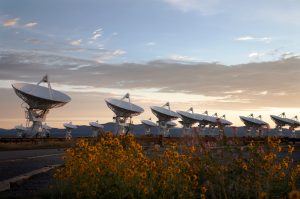
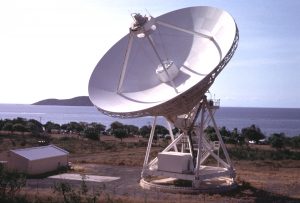
The St. Croix Antenna
The Very Long Baseline Array (VLBA) station on St. Croix, in the U.S. Virgin Islands, in a photo made prior to Hurricane Maria. Funding from the National Science Foundation will be used to repair damage caused by that storm in 2017.
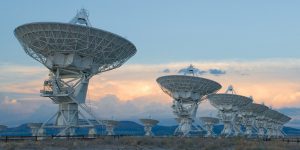
VLA Panorama
The Very Large Array (VLA) is a collection of 27 radio antennas located at the NRAO site in Socorro, New Mexico. Each antenna in the array measures 25 meters (82 feet) in diameter and weighs about 230 tons.

Stanford Astronomer Honored as Jansky Lecturer by AUI, NRAO
Associated Universities, Inc. (AUI), and the National Radio Astronomy Observatory (NRAO) have awarded the 2018 Karl G. Jansky Lectureship to Professor Roger D. Blandford of Stanford University. The Jansky Lectureship is an honor established by the trustees of AUI to recognize outstanding contributions to the advancement of radio astronomy.
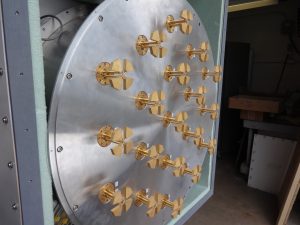
New Technology Offers to Broaden Vision for Radio Astronomy
To accelerate the pace of discovery and exploration of the cosmos, a multi-institution team of astronomers and engineers has developed a new and improved version of an unconventional radio-astronomy imaging system known as a Phased Array Feed (PAF). This remarkable instrument can survey vast swaths of the sky and generate multiple views of astronomical objects with unparalleled efficiency. This image shows the 19-element phased array feed developed by the NRAO CDL.
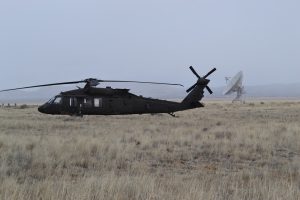
UH-60 Blackhawk Helicopters land at the Very Large Array
As part of a training event, the U.S. Army’s C Company, 3rd Battalion,
501st Aviation Regiment, Combat Aviation Brigade, First Armored
Division, based at Fort Bliss, Texas, made a stop at the VLA on February
20, 2018.





